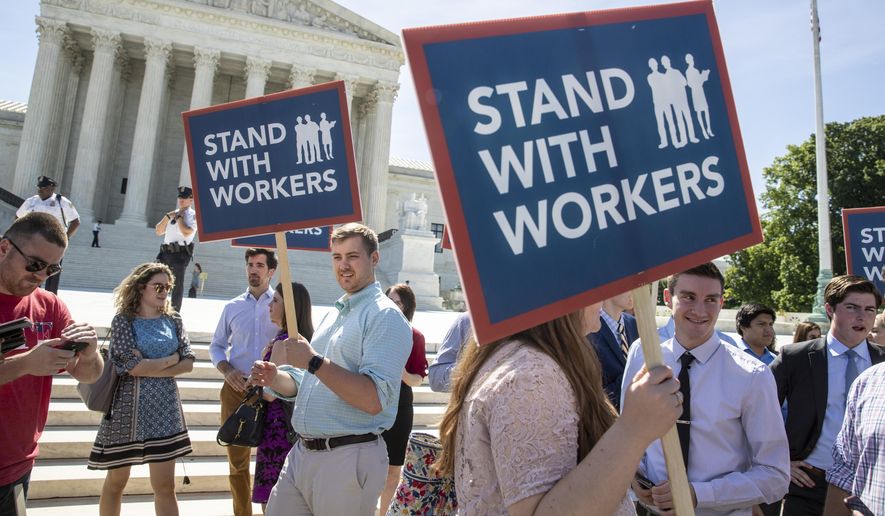WASHINGTON (AP) - The Latest on the Supreme Court ruling on union fees (all times local):
11:50 a.m.
Teachers unions sharply criticizing the U.S. Supreme Court’s Wednesday ruling on union fees say justices sided with wealthy business interests over the working class and public servants.
The court ruled government workers can’t be compelled to contribute fees to labor unions that represent them in collective bargaining. It’s considered a significant financial blow to organized labor, but the teachers unions say they’re not going anywhere.
The head of the largest teachers union, National Education Association President Lily Eskelsen Garcia, calls the court decision “a slap in the face” but says unions remain “the best vehicle on the path to the middle class.”
American Federation of Teachers President Randi Weingarten called it “a dark day in U.S. jurisprudence” and warned: “Don’t count us out.”
___
10:15 a.m.
President Donald Trump is hailing a Supreme Court ruling on union fees, asserting that it amounts to a “Big loss for the coffers of the Democrats!”
Trump tweeted shortly after the Supreme Court ruled that government workers can’t be compelled to contribute to labor unions that represent them in collective bargaining. The ruling is considered a significant financial blow to organized labor.
While Trump received the support of some union workers in his 2016 campaign, labor unions have largely sided with Democrats.
The decision has long been sought by conservatives who have pushed to loosen requirements that public employees pay some union fees to the unions representing them.
___
10:10 a.m.
The Supreme Court says government workers can’t be forced to contribute to labor unions that represent them in collective bargaining, dealing a serious financial blow to organized labor.
The justices are scrapping a 41-year-old decision that had allowed states to require that public employees pay some fees to unions that represent them, even if the workers choose not to join.
The 5-4 decision Wednesday fulfills a longtime wish of conservatives to get rid of the so-called fair share fees that non-members pay to unions in roughly two dozen states.




Please read our comment policy before commenting.